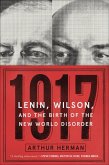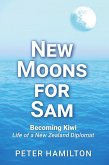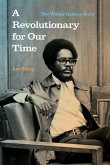Leopold Kerney was one of the most influential diplomats of twentieth-century Irish history. This book presents the first comprehensive biography of Kerney's career in its entirety from his recruitment to the diplomatic service to his time in France, Spain, Argentina, and Chile. Barry Whelan's work provides fascinating new perceptions of Irish diplomatic history at seminal periods of the twentieth century, including the War of Independence, the Irish Civil War, the Anglo-Irish Economic War, the Spanish Civil War, and World War II, from an eyewitness to those events. Drawing on over a decade of archival research in repositories in France, Germany, Britain, Spain, and Ireland, as well as through unique and unrestricted access to Kerney's private papers, Whelan successfully challenges previously published analyses of Kerney's work and debunks many of the perceived controversies surrounding his career.
Ireland's Revolutionary Diplomat brings to life Kerney's connections with leading Irish figures from the revolutionary generation including Michael Collins, Ernest Blythe, George Gavan Duffy, Desmond FitzGerald, Arthur Griffith, and Seán T. O'Kelly, as well as his diplomatic colleagues in the service. More importantly, the book illuminates the decades-long friendship Kerney enjoyed with Éamon de Valera-the most important Irish political figure of the twentieth century-and shows how the "Chief" trusted and rewarded his friend throughout their long association. The book offers a fresh understanding of the Department of External Affairs and critically assesses the roles of Joseph Walshe, secretary of the department, as well as Colonel Dan Bryan, director of G2 (Irish Army Military Intelligence), who both conspired to destroy Kerney's reputation and career during and after World War II. Whelan sheds new light on other events in Kerney's career, such as his confidential reports from fascist Spain that exposed General Francisco Franco's crimes against his people. Whelan challenges other events previously seen by some historians as controversial, including Kerney's major role in the Frank Ryan case, his contact with senior Nazi figures, especially Dr. Edmund Veesenmayer and German military intelligence, and his libel case against an acclaimed Irish historian Professor Desmond Williams. This book offers new observations on how Nazi Germany tried to utilize Kerney, unsuccessfully, as a liaison between the Irish government and Hitler's regime. Captured German documents reveal the extent of this secret plan to alter Irish neutrality during World War II, which concerned both Adolf Hitler and the leading Nazis of his regime.
Ireland's Revolutionary Diplomat brings to life Kerney's connections with leading Irish figures from the revolutionary generation including Michael Collins, Ernest Blythe, George Gavan Duffy, Desmond FitzGerald, Arthur Griffith, and Seán T. O'Kelly, as well as his diplomatic colleagues in the service. More importantly, the book illuminates the decades-long friendship Kerney enjoyed with Éamon de Valera-the most important Irish political figure of the twentieth century-and shows how the "Chief" trusted and rewarded his friend throughout their long association. The book offers a fresh understanding of the Department of External Affairs and critically assesses the roles of Joseph Walshe, secretary of the department, as well as Colonel Dan Bryan, director of G2 (Irish Army Military Intelligence), who both conspired to destroy Kerney's reputation and career during and after World War II. Whelan sheds new light on other events in Kerney's career, such as his confidential reports from fascist Spain that exposed General Francisco Franco's crimes against his people. Whelan challenges other events previously seen by some historians as controversial, including Kerney's major role in the Frank Ryan case, his contact with senior Nazi figures, especially Dr. Edmund Veesenmayer and German military intelligence, and his libel case against an acclaimed Irish historian Professor Desmond Williams. This book offers new observations on how Nazi Germany tried to utilize Kerney, unsuccessfully, as a liaison between the Irish government and Hitler's regime. Captured German documents reveal the extent of this secret plan to alter Irish neutrality during World War II, which concerned both Adolf Hitler and the leading Nazis of his regime.
Dieser Download kann aus rechtlichen Gründen nur mit Rechnungsadresse in A, D ausgeliefert werden.









